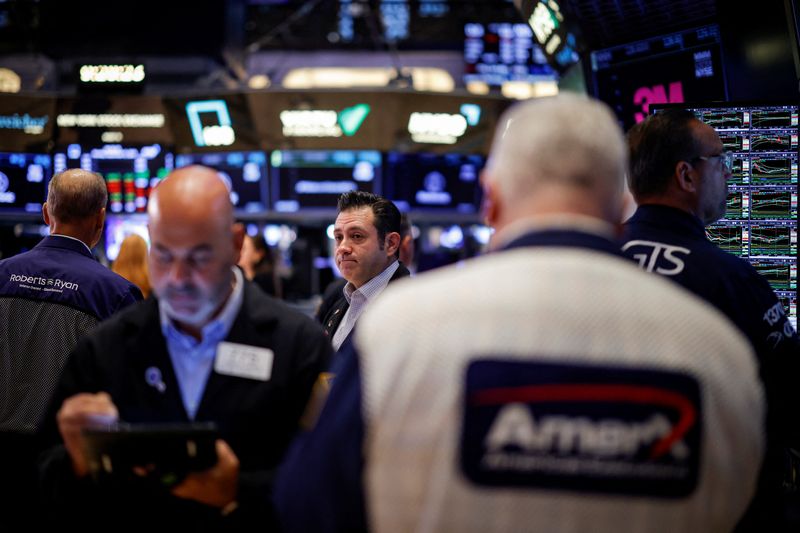Tech stocks plummeted on Wall Street overnight, with Microsoft (NASDAQ:MSFT) slumping 6% to report its worst performance in years, dragging down the US markets.
The Dow Jones fell by 378 points or 0.9%, the S&P 500 fell 1.9%, and the tech-heavy Nasdaq index lost 513 points or 2.8%.
The S&P 500 saw its first monthly slide since April, shedding 1.0% in October, while the Dow and Nasdaq recorded losses of 1.3% and 0.5%, respectively.
There’ll be an inevitable flow on effect for Australian shares when the market opens today.
Not-so-magnificent seven
Along with Microsoft, the owner of Facebook (NASDAQ:META) Meta Platforms also fell 4.1%, despite exceeding earnings expectations reported after Wednesday’s closing bell.
This might have had something to do with both companies indicating that rising AI capital costs could impact future earnings.
Other tech titans, including Amazon (NASDAQ:AMZN), Apple (NASDAQ:AAPL) and Alphabet (NASDAQ:GOOGL), also fell.
"You had three of the Magnificent Seven all say they basically have open-ended budgets for AI spend and investors don't like to hear that," said BMO Family Office chief investment officer Carol Schleif.
Semiconductor stocks were also on the wane, with Monolithic Power Systems falling 17.5% post-results, while Nvidia slipped 4.9%.
Estee Lauder (NYSE:EL) led losses, plummeting 20.9% after withdrawing its 2025 forecast.
Property cools
The Australian Bureau of Statistics (ABS) will release its monthly household spending indicator for September at 11:30 am Sydney time, providing a broader measure of household spending, though the Aussie dollar is expected to remain under pressure amid the impending US election and a robust US economy.
Australia’s property market shows signs of cooling, with CoreLogic data indicating a modest 0.3% increase in the national median house price to $809,849 in October.
This marks 21 consecutive months of rising property prices, though growth across capital cities remains uneven.
European markets mirrored the broader bearish trend, with all sectors ending lower.
Retail and technology sectors led the retreat, dropping 3.9% and 2.2%, respectively.
The pan-European FTSEurofirst 300 index dipped 1.1%, marking a 3.1% loss for October, its worst performance in a year. In the UK, the FTSE 100 index decreased by 0.6% and closed October 1.5% lower.
In economic data, some little-reported good news for the Biden administration – US initial jobless claims fell by 12,000 to 216,000, while personal income rose 0.3% in September.
Bond yields rose, with the US 10-year Treasury yield climbing 2 basis points to 4.28% as strong consumer spending counterbalanced concerns about wage inflation.
Currencies and commodities
Adding to market pressures, the Australian dollar fell to a low of US$0.6540 overnight due to declining US equities. The dollar later rebounded to trade near US$0.6580.
Elsewhere, the Euro rose to US$1.0887, while the Japanese yen strengthened to JPY151.83 per US dollar.
Brent crude rose by 61 US cents or 0.8% to US$73.16 per barrel, while gold futures dropped by US$51.50 or 1.8% to US$2,749.30 an ounce after reaching a record high of US$2,790.15.
Iron ore dipped 0.3% to US$103.78 per tonne.
Looking ahead, Australian economic indicators are due, including home prices and manufacturing data, alongside company earnings from Macquarie and Amcor.
What's happening in small caps?
